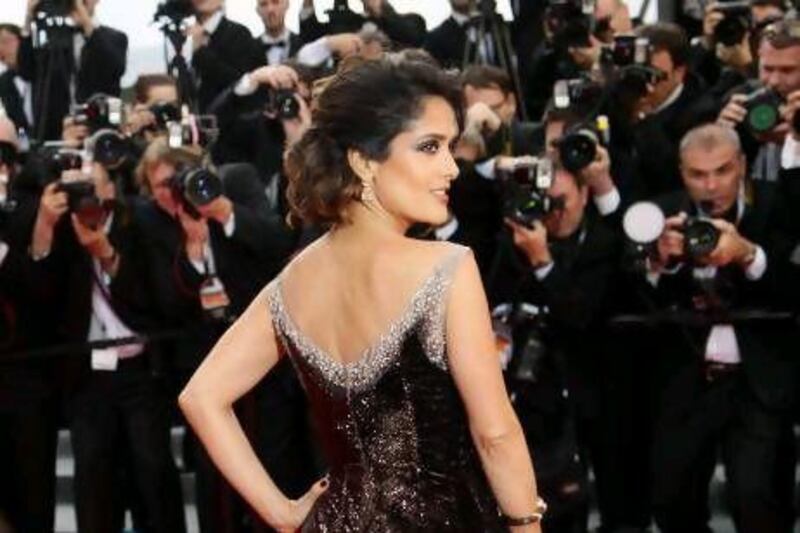Translated into more than 40 languages and with estimated sales of 100 million, Kahlil Gibran’s The Prophet is one of the most internationally renowned and adored books of all time. Despite first being published in 1923, this series of philosophical poems from one of Lebanon’s most treasured sons is still prominent on many bestseller lists, and some estimates put international sales at a healthy 5,000 per week.
Next year, interest in the book is expected to spike when the Salma Hayek-produced and Doha Film Institute-funded animated adaptation of The Prophet is due to be released. But despite the book's ongoing success establishing Gibran as the third best-selling poet of all time – behind Shakespeare and Lao-Tzu – little is known about the man behind the prose. Thankfully, this could change if the biopic set to go into production in 2014 ever hits movie screens.
“While he is very well known for his writing, he isn’t well known to this day for his painting and his sketches,” says the film’s Los Angeles-based producer, William Nix, who is also serving as an executive producer for the animated adaptation of The Prophet. “One of the things that this biographical feature will bring to a wider audience is knowledge of his artwork.”
The film has recently been authorised by the Gibran National Committee of Lebanon. The screenplay – which was written by the Lebanese American Grace Yazbek, working alongside her brother Rob, and was a quarter-finalist for the AMPAS Nicholl Fellowship for Screenwriting last year in the US – is now in the hands of Kahlil Gibran’s cousin, the biographer Jean Gibran, for polishing.
The story will follow Gibran from humble beginnings in Bsharri, in northern Lebanon, to the US, where he started school in Boston at 12, before returning to Lebanon. He then headed to Paris for artistic studies and finally to New York City, where he died in 1931 at just 48. Along the way, there are friendships with the likes of the French sculptor Rodin, the Swiss psychologist Carl Jung and the Irish literary giant WB Yeats, along with work published by the famed Alfred A Knopf.
“Besides him being a great artist, philosopher and poet, we’re also trying to show the man behind it, and the obstacles he had to overcome to get there,” says Yazbek, who, like Gibran, spent much of her life in Boston before recently returning to Lebanon. “He was living with his demons and living so far from home. There are flashbacks of him remembering Lebanon and the countryside that he was so attached to and, if you look at his paintings, you can see what was in his mind and his heart.”
One of the main themes is Gibran’s relationship with his mother, Kamila.
“They were very poor, but she believed in him and the entire family worked and allowed him to nurture his creativity,” says Yazbek. “It’s a beautiful story, and I think a lot of people, no matter what their religion, culture or background, will be able to relate to it.”
Another major character in the film is likely to be Mary Haskell, the Boston headmistress and, as their correspondence would later reveal, the object of Gibran’s affection. It was Haskell to whom Gibran bequeathed the contents of his studio and who purchased the Mar Sarkis Monastary in Bsharri, where the author was buried and which has now been transformed into the Gibran Museum.
“I’ve been wanting to tell Gibran’s life story for several years now,” says Nix, adding that it was Jean Gibran who brought the screenplay to his attention. “I was immediately in touch with Grace because it sounded like it was exactly what I’d been looking for – someone who really understands what Gibran was about, not only the factual history, but also the spiritual, philosophical and artistic side of what his life was about.”
Once the screenplay has been finalised, the next step is to find a director, before talking to actors and potential investors, with an eye to go into production in 2014.
While the film should help shed new light on the life of one of the world’s most inspiring creatives (few might know that Gibran wrote the line: “Are you a politician asking what your country can do for you or a zealous one asking what you can do for your country” – 36 years before John F Kennedy’s famous speech), there’s also hope it will provide a source of inspiration.
“The diaspora is all over the world, and through Gibran we’re hoping to make people proud that they overcame a lot and travelled extensively to create their dream, whatever they may be,” says Yazbek. “There have been many movies about Irish-Americans and Italian-Americans, and I’m hoping that we finally have a hero from this part of the world to overcome some of the stereotypes. I think Gibran is definitely a hero.”
The project
By the time the Khalil Gibran biopic goes into production in 2014, taste buds for the regional literary heavyweight should already have been tingled by the animated adaptation of his most famous book, The Prophet.
Announced earlier in the year, the film is being produced by Salma Hayek with funding from the Doha Film Insitute, and will see an impressive line-up of directors take a chapter of the book each to give their own unique spin. And alongside Marjane Satrapi and Oscar-winners Joan Gratz and Chris Landreth is Mohammed Harib, the Emirati filmmaker behind the successful Freej TV show. Harib is putting together the chapter entitled Crime and Punishment which, like the others in the film, will be between three and five minutes in length.
A release date for the finished project is yet to be announced, but given that the Doha-funded Black Gold opened last year’s Doha Tribeca Film Festival and Doha-funded The Reluctant Fundamentalist is set to do the same this November, there’s a good chance The Prophet could be heading our way late next year.






